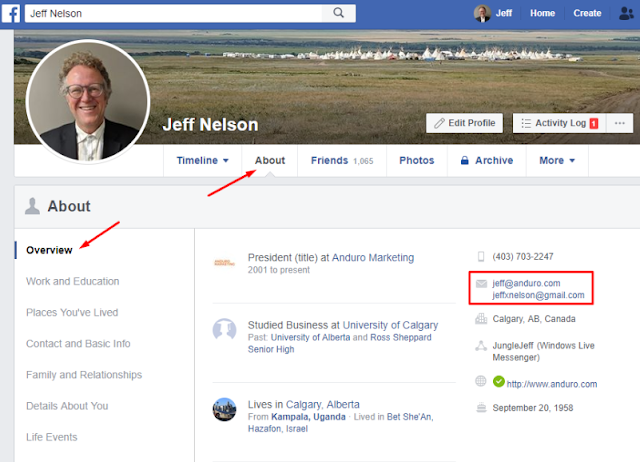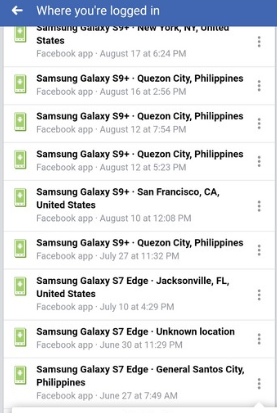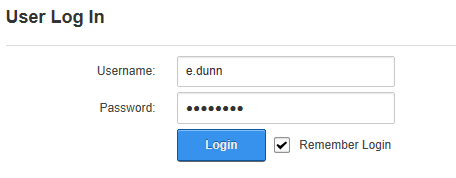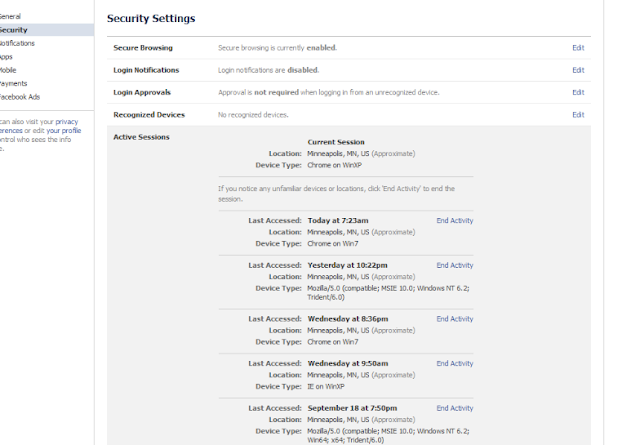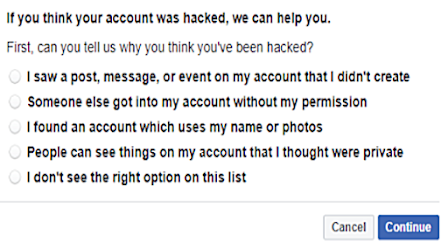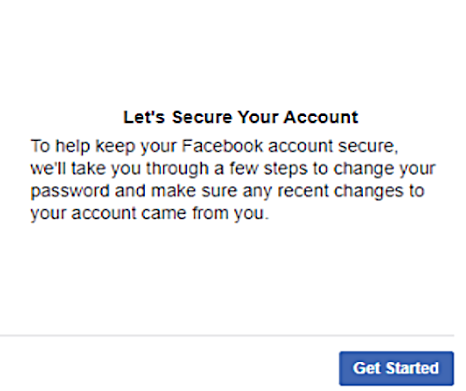Facebook told the court that they don't feel they should be held liable for the charge of failing to protect user information when their site was hacked on September 14, 2018.
 |
| Facebook lost to a US District Court Judge's decision on June 21, 2019 |
Facebook said that because no harm had been done to those Facebook users who already had their settings on PUBLIC (the setting where anyone can see their info) so therefore their private information was not so private and had not been stolen at all - it was freely provided. Facebook said that those users should not be included in the Class Action Lawsuit against them. If a judge agrees, this will eliminate several millions of users.
Facebook also claimed that there have been no reported incidents by users where hackers stole their financial info or passwords.
Facebook said that users who were not actually hacked should also be excluded from the Class Action Lawsuit. This will further eliminate many millions of more users
QUESTION FOR READERS:
Jeff Nelson, the guy in the picture below, truly is a hack waiting to happen because he is literally offering up his information (for free!) on a silver platter. If someone like Jeff exposes all their information, does that mean Facebook should be allowed to remove them from the class action lawsuit because their information was never private in the first place?
Jeff Nelson, the guy in the picture below, truly is a hack waiting to happen because he is literally offering up his information (for free!) on a silver platter. If someone like Jeff exposes all their information, does that mean Facebook should be allowed to remove them from the class action lawsuit because their information was never private in the first place?
WTF???? How many people do you know have actually REPORTED TO FACEBOOK that they have been hacked?
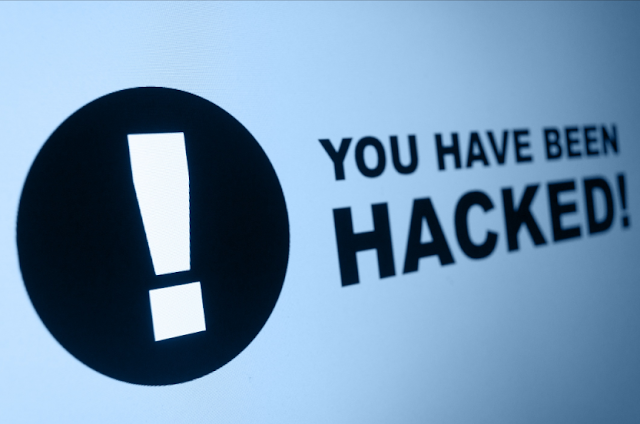 |
| Most people are too embarrassed to admit they have been hacked |
Although more than half of Facebook's hacked users are too embarrassed to even talk about it much less report it to Facebook, and the other half of Facebook users typically write a Public status telling their friends and followers that they have been hacked.
Heads up! That status is NOT reporting it to Facebook. It is reporting it to your friends and followers!
When people don't report that they have been hacked, those statistics don't reach Facebook. An unreported hacking allows Facebook to continue to claim their site is safe.
THE JUDGE'S RESPONSE
On June 21, 2019, U.S. District Judge William Alsup disagreed with Facebook and said they should be held liable. He said that reasonable care was not taken in handling the personal information of 50 million or more Facebook users and that the breach also helps businesses who can profit by using the stolen data.
IN PLAIN LANGUAGE:
When Facebook was hacked on September 14, 2018, bad actors (hackers) were able to access the personal information of 50 million users -- such as their date of birth, phone numbers, location by IP address, names of trusted contacts, account recovery methods, private messages, and names of family member and the live links to their Facebook accounts.
You may remember that some of this information is what Facebook insists that they NEED should you get locked out of your account.
But, as you might have learned, Facebook really doesn't need all of it.
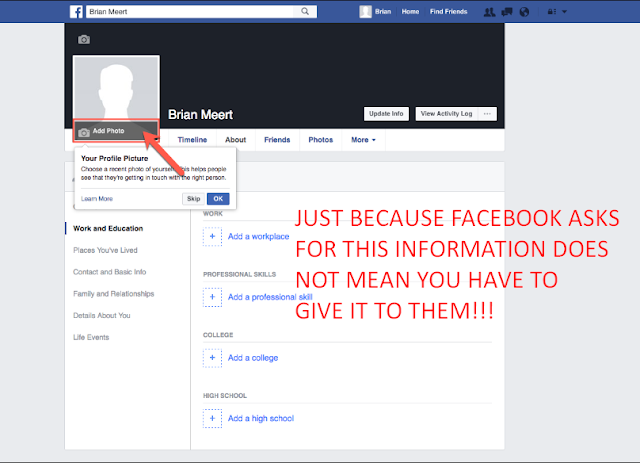 |
| Facebook users volunteer too much information - freely. |
Facebook knew of the breach but didn't tell the public right away. They only got concerned when hackers stole each user's digital access tokens because the tokens allowed hackers to have unauthorized and unlimited access to Facebook accounts - which amounts to 'hacking without effort.'
ABOUT DIGITAL ACCESS TOKENS
When stolen digital access tokens are used by unauthorized people, the real Facebook owners are not aware of another person's presence on their account.
However, they can learn of it if they personally check "WHERE YOU ARE LOGGED IN" section to look for locations that are NOT their own.
When the hacker is the only one on an account after your password has been cracked, the hacker then changes the password to his own.
Now the new password is recorded by the account's digital access token and your old information that was previously on the token is deleted because the new information overrides it.
This is why old passwords do not work.
When the real Facebook user tries to get back onto their account, the digital access token only remembers the last information that was keyed in as the true credentials to access the account.
Although hacking a user password is still the number one way that hackers steal Facebook accounts, the digital access token is what allows the hacker to keep the account so the original owner never gets it back.
This digital access token is what works with the REMEMBER ME checkbox that Facebook offers to its users to be able to get onto their account by tapping a profile picture to login. The token has coding that remembers your login information so you don't have to manually type it in each time you want to login.
The digital access token also allows a user to STAY logged in over a period of days, weeks, or months without having to log in manually each day.
You will know this token is active when you see a list of "active sessions" of two or more logins showing dates older than today, and showing places where you are still logged in.
OUR TAKE ON THIS:
This is why we warn you NOT to log out by tapping the X at the top right of your Facebook screen.
The X does not log you out. It only closes your Facebook screen.
You should be tapping the down arrow at the top right of your Facebook screen, then select LOG OUT from the drop-down menu.
We also tell you not to allow a long list of login sessions to build up because these are open sessions that anyone can use to get onto your Facebook account.
In short, an Open Session means your password or user name is NOT needed to get on your account. Any open session can be used because you are already signed in.
:::::SELF-TEST YOUR ACCOUNT:::::
After you turn on your device and get on the internet, if you can see your Facebook newsfeed or profile screen without typing in your user /password information -- then you NEVER LOGGED OUT CORRECTLY.
You are still logged in and have been all that time because of an Open Session.
The fix? Close the connection by going to - Settings>>>Security and Login>>>Where You Are Logged In - and tap END SESSION on each session.
Then log out of your account using the drop-down arrow and tapping the words LOG OUT. Don't login again yet.
First, change your password and then login to make a new connection. When you are done, use drop down arrow again and choose LOG OUT.
WOW!
In another case, Facebook is preparing to pay $5 billion to the Federal Trade Commission (FTC) that will pay off the US government to put aside Facebook's involvement of their owned app called What's App - and their knowledge of the app improperly sharing the personal information of millions of its users with Cambridge Analytica.
Does that seem fair that you can pay a fine and it wipes your record clean of wrongdoing?
You will remember that Cambridge Analytica is the company hired by Donald Trump presidential election campaign who used two separate third-party apps (What's App and nametests.com) to hack Facebook's vast database for a list of user names, addresses, phone numbers, work locations and their voting party in order to sway their votes away from Hilary Clinton so he could win the Presidency of the United States. Yet this has never been labeled as election tampering.
In a separate case, Cambridge Analytica is still being pursued by the Federal Trade Commission for its involvement in the illegal activities of being the entity who provided the Trump campaign with user data.
THE JUDGE'S RULING
The judge ruled that regardless of each user's Facebook account privacy settings, that the Class-Action lawsuits against Facebook will go forward and in a timely manner.
There are 11 class-action lawsuits which were consolidated into one case.
There is another case which includes ten complaints about a breach of contract, negligence, and violations of unfair competition law.
Judge Alsup also said user concerns are worth “real money,” rather than “some cosmetic injunctive relief” - referring to Facebook's solution of logging out, changing password, and logging back in again - which, he said, is not adequate compensation.
Sources:
Please share our posts with your friends so they can enjoy our websites too. Thank you.

